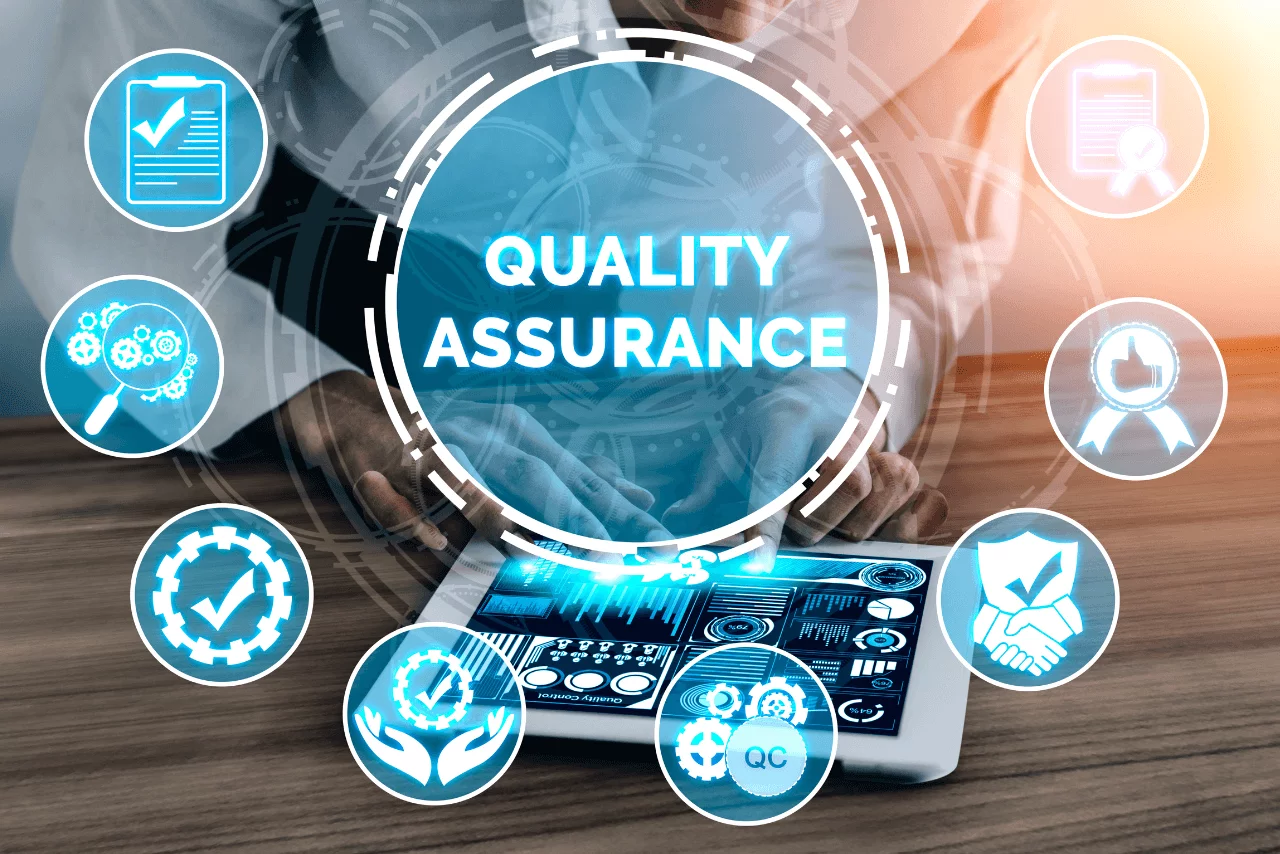If you have started working as a QA Engineer, you must have realized that it poses tremendous challenges. To thrive in this job role, you must constantly stay updated with the latest information on IT and QA. So learning to become efficient has become indispensable in today’s world. Nevertheless, you cannot become the best of the best overnight. It’s a step-by-step process. This article will guide you through some QA Skills Efficiency tips that will boost your work progress.
Corporate Mindset

Workplace ethics and philosophy can tremendously impact your growth and personal performance. So understand the values, norms, and ethics of your organization’s working process. The corporate mindset can be attributed to your positive attitude and dedication. In this case, feedback seeking, creative problem solving, psychological ownership, and strategy execution come to play. Learn to develop this attribute and approach in your working style, and you will do wonders in your QA testing.
Stay Organized

As a QA engineer, you are responsible for detecting the minute bit of defects in the software or website. This involves a lot of end-to-end communication with your team members, clients, and customer base to understand the needs of your product. As you receive several updates and info from different individuals, keep all this information well-sorted and organized in a separate worksheet or notepad. Keep all the data stored in one place to avoid chaos. Allow its access to all developers and testers to allow up-gradation and change at any moment of the development process.
Formulate Bug Reports
A bug report is essential to work with the whole team efficiently. The list of identified bugs gives an overview of the system. You can quickly progress towards the next step based on the organized detailing of the identified bugs. Keep the document simple and precise, with all the essential information embedded in it.
Team Player
As a QA engineer, your job is not limited to bug tracking. It would be best if you worked effectively with the team. Communicate well with your team by exchanging ideas and feedback. Take all the team member’s ideas into careful consideration for a fruitful outcome. As a team member, convey your queries frequently to your leader, so there remains no gap and confusion. If you are a team leader, give a brief idea to everyone on your team about the application before you start the work. Regarding decision-making, take support and insight from your team members to avoid potential risks.
Double Check Client Requirements
Keep all the information regarding the software or web development requirements sorted before starting. Understand the need and plan your work accordingly. For customer-oriented software, keep up with the user experience. Your software testing should follow usability, efficiency, portability, maintainability, reliability, and functionality criteria. Communicate the QA test results with the development team to check if it meets the client’s requirement.
Utilize the Right Testing Tools
You must understand the accurate testing tool fit for your work. Few testing processes are automated and require specific tools for execution. Appium, fiddler, confluence, Gatling, Selenium, Sauce Labs, Crucible, SoapUI, Jenkins are some of the best tools for automated test processes.
Expand your Interest

There are several sectors in QA Engineering. As a QA Engineer, you need to understand each of these fields, starting from documentation, testing processes, programming, analysis, and automation to knowledge development across different domains. Keep a watchful eye on everything happening around you. Stay updated about Windows operating system, automation tools, mobile application testing, and the healthcare domain. A diversified knowledge will allow you to look at the bigger picture and easily understand the similarities and differences.
Learn Management
Management is a crucial QA skills efficiency technique, regardless of any role. Keeping all the pending work organized and delivering it accordingly is highly demanding. Hence, learn from your seniors to manage resources, clients, projects, timelines, etc. Time management and team coordination play a huge role in this regard. When you allocate your work based on the timetable, priority, and resources, you can easily reach your target of providing a productive output.
These are the essential tips that can help you increase your skill. Note all these QA skills efficiency pointers on your list to enable a more productive outcome. Transfotech Academy is right by your side to always make your QA learning journey easy and fruitful.
FAQs
What are QA skills?
QA skills refer to the abilities and knowledge required to effectively perform quality assurance tasks. These include attention to detail, analytical thinking, knowledge of QA methodologies and tools, communication skills, and problem-solving abilities.
How can I improve my efficiency in QA testing?
To improve efficiency in QA testing, focus on enhancing your understanding of the software or product, practice continuous learning of new testing methodologies, use automation tools where applicable, and develop strong communication and collaboration skills.
How important is communication in QA efficiency?
Communication is vital in QA efficiency. Clear communication with the development team, project managers, and stakeholders helps in understanding requirements, reporting bugs effectively, and ensuring that all team members are aligned.







3 Responses
MyCellSpy es una poderosa aplicación para el monitoreo remoto en tiempo real de teléfonos Android.
Thank you for the good writeup It in fact was a amusement account it Look advanced to far added agreeable from you However how could we communicate
Can you be more specific about the content of your article? After reading it, I still have some doubts. Hope you can help me.